CISAC Names 2025-2026 Fellows
CISAC Names 2025-2026 Fellows
The Center for International Security and Cooperation (CISAC) is pleased to welcome the fellows who will be joining us for the 2025-26 academic year. These scholars will spend the academic year generating new knowledge across a range of topics that can help all of us build a safer world.
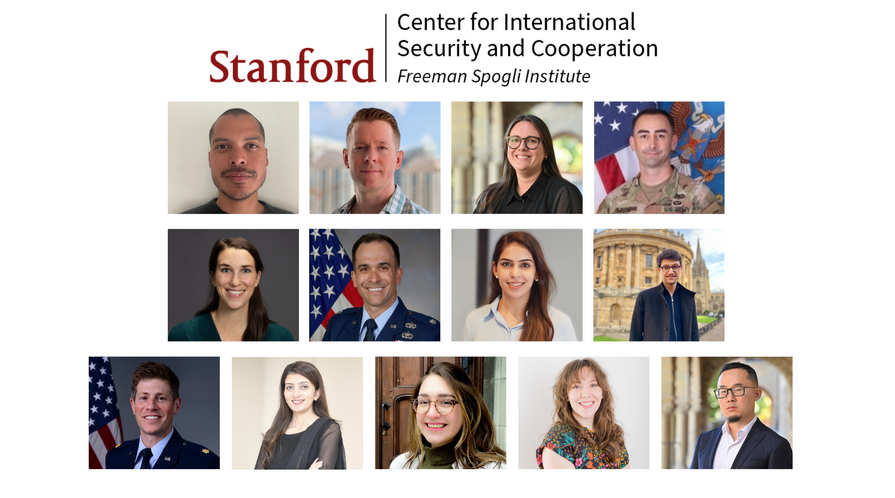
CISAC Fellows spend the academic year engaged in research and writing, participating in seminars and interacting and collaborating with leading faculty and researchers. The CISAC fellowship provides an unparalleled opportunity for scholars and professionals to explore complex international problems and innovative solutions in a collegial and collaborative environment.
MEET THE FELLOWS
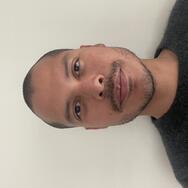
Kevin Bustamante
WebsitePrior to coming to CISAC, Kevin was a Hans J. Morgenthau Fellow at the Notre Dame International Security Center in 2023-2024. He completed his Ph.D. in political science at the University of Notre Dame in May 2023. Before graduate school, Kevin was a high school teacher for the Miami-Dade County Public School system where he taught English, World History, and Ethics.
Kevin's research focuses on racism and international security. He is interested in the structural causes of racial equality and inequality in the international system including how interstate competition affects patterns of racial domination. A significant part of his research focus is concerned with how racism shapes our understanding of nuclear politics.

LTC Mike Cooke
LTC Mike Cooke is joining CISAC during the AY2025-26 as an Army War College Fellow and visiting scholar. He is a career military officer with experience as an infantryman and a Foreign Area Officer focused on China.
Mike's primary research focus is on the ethics of AI and automated systems in combat and defense. He also conducts research on the use of cognitive domain warfare in the Indo-Pacific theater.
Mike received his undergraduate degree in English and Education and received a masters of International Public Policy from Johns Hopkins School of Advanced International Studies.

Anna-Katharina Ferl
Anna Ferl is a postdoctoral fellow at the Stanford Center for International Security and Cooperation (CISAC). Before joining CISAC, Anna worked as a researcher at the Peace Research Institute Frankfurt (PRIF) and completed her PhD in Political Science at Goethe University Frankfurt, Germany. She was a research fellow at the German Federal Foreign Office, Cornell University, and the University of Southern Denmark.
Her research focuses on the intersection of politics, international security, and technology, with a specific focus on military applications of AI and autonomy. She is interested in how these technological developments shape human-machine relations and understandings of the human role in future warfare. This also influences how AI technologies could be politically regulated and governed.
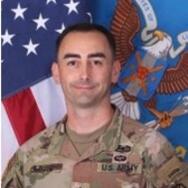
LTC Michael Glover
LTC Michael Glover is joining CISAC during the AY2025-26 as an Army War College Fellow and visiting scholar. Prior to CISAC, LTC Glover began active-duty service at Joint Base Lewis-McChord, Washington in the 2nd Infantry Division. Since then, he has served in the 25th Infantry Division; Maneuver Center of Excellence; 75th Ranger Regiment; Headquarters, United States Army Pacific; 25th Infantry Division; 500th Military Intelligence Brigade-Theater; and Special Operations Command-Pacific. Most recently, he served as the commander for the 125th Intelligence and Electronic Warfare Battalion.
Following battalion command, LTC Glover transitioned to the 3rd Multi-Domain Task Force, where he is currently serving as the Deputy Commander. LTC Glover has commanded and served as the senior intelligence officer at various levels in both Afghanistan and Iraq. He has been deployed throughout the IndoPacific for both operations and exercises. He is a graduate of the Infantry Officer's Basic Course, Military Intelligence Captain’s Career Course, and Command and General Staff College.
Originally from Arizona, Lieutenant Colonel Michael Glover graduated from Grand Canyon University in 2005 with a Bachelor of Science degree in Justice Studies and holds a master's degree in education from Columbus State University.
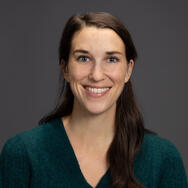
Elizabeth Good
WebsitePrior to joining CISAC, Elizabeth was an International Security Program Fellow at Harvard Kennedy School’s Belfer Center, a Research Fellow at Harvard Kennedy School’s Women and Public Policy Program, a USIP-Minerva Peace and Security Fellow, and a Dissertation Fellow at the Buffett Institute for Global Affairs. She was a former SSHRC Doctoral Fellow and a Graduate Research Fellow at the Program on Negotiation at Harvard Law School. Additionally, she was the International Relations Editorial Assistant for Perspectives on Politics, where she read and assessed all IR submissions for publication. Elizabeth has worked as a Gender Specialist with the United Nations Development Programme (UNDP) in Kosovo and as a Gender Consultant for the United States Agency for International Development (USAID) in Ghana.
Elizabeth works at the intersection of international relations, comparative politics, and public policy, focusing on gender and politics, peace and security, and multimethod research. She specializes in women’s representation in high-level peace and security negotiations, testing the conditions that facilitate provisions for women in peace agreements. Elizabeth conceptualizes and measures power dynamics governing negotiations, and she tests how individuals advocate for themselves in unfavorable settings. Her findings offer insights into human security, diplomacy, negotiation outcomes, gender norms, and representation. She leverages multimethod research, combining statistical analysis, experiments, process tracing, and case studies.
Her hobbies include being an avid skier, hiker, and biker, and she even completed 400km of Canada’s Great Divide Trail in Summer 2024. She loves to bake and is passionate about finding the perfect donut.
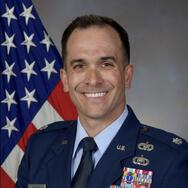
Lt Col Austin Gruber
Lt Col Austin Gruber is joining CISAC during the AY2025-26 as an Air Force National Defense Fellow and visiting scholar. He is is a Joint Qualified Officer with over 20 years of experience in both logistics and aircraft maintenance that has served at the Flight, Squadron, Group and Combatant Command levels and currently the Deputy Commander, 309th Aircraft Maintenance Group at Hill Air Force Base, Utah.
Prior to CISAC, Lt Col Gruber began his military career as an Imagery Analyst attending the Imagery Analyst Apprentice Course at Goodfellow AFB, Texas. After earning his Bachelor of Science Degree from Southern Illinois University in 2007 he received his commission through the Air Force Officer Training School, Maxwell AFB, Alabama, in December 2008 as a Logistics Readiness Officer.

Dipin Kaur
WebsiteDipin Kaur is an Assistant Professor of Political Science and International Relations at Ashoka University, India. Her work is published in the American Journal of Political Science, Oxford Intersections, and Social Text. Dipin's research has been supported by the MacMillan Center for International and Area Studies and the South Asian Studies Council at Yale University.
Dipin's research examines ethnicity and state strategy in the shadow of political violence, with a regional focus on South Asia and the British Empire. She is currently working on a book project that investigates why states employ coethnic security forces (those that share an ethnic identity with insurgents) as counterinsurgents in some conflicts, but rely on personnel from ethnic outgroups in others.
In her free time, Dipin loves traveling to new cities, usually with a camera in one hand and a cup of coffee in the other.
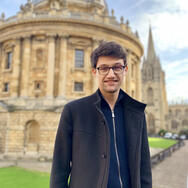
Arthur Laudrain
WebsiteBefore joining Stanford, Arthur was a Research Associate in Cyber Diplomacy at the Department of War Studies at King's College London. There, he contributed to the "Cyber Statecraft in an Era of Systemic Competition (CyCraft)" project, with a specific focus on middle-ground cyber diplomacy.
Arthur is broadly interested in the intersection of emerging technology and international security, with a focus on information manipulation and foreign interference. As the R. Lounsbery US-France Security Fellow, he will build upon his doctoral research on cyber-enabled foreign election interference, and prepare his manuscript for review and publication in an academic press.
In his free time, Arthur enjoys hiking, sky and ocean diving, and is looking forward to exploring the beautiful landscapes California has to offer.
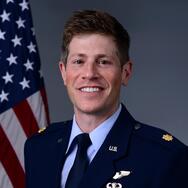
Major Peter Lind
Major Peter Lind is joining CISAC during the AY2025-26 as an Air Force National Defense Fellow and visiting scholar. Before joining CISAC, Peter worked as a researcher and completed a PhD in International Relations at the University of St. Andrews in the UK as a Marshall Scholar. After his studies, he served as an F-15 Fighter Pilot deploying globally. Peter fought ISIS and engaged unmanned aerial systems in Southwest Asia and also deployed in defense of NATO after the Russian invasion of Ukraine. Graduating from the USAF Weapons School in 2022, he most recently served in Europe as a Fighter Wing's key advisor and lead tactician for global force projection.
Peter's research has focused on the intersection between international security, politics, and human rights with a specific focus on force projection and international law. He's interested in technological advancement, AI, and power projection within international affairs.

Sitara Noor
Prior to CISAC, Sitara Noor served as the "Managing the Atom" Fellow at the Harvard Kennedy School’s Belfer Center for Science and International Affairs from 2022 to 2024. In 2023, she was a Fellow at the NATO Defence College in Rome. Prior to these roles, she was a Senior Researcher at the Centre for Aerospace & Security Studies (CASS) in Islamabad, Pakistan, from 2019 to 2022. She also held the position of Research Fellow at the Vienna Centre for Disarmament and Non-Proliferation (VCDNP) in Vienna, Austria, during 2016–2017. Earlier in her career, she worked as an International Relations Analyst at the Pakistan Nuclear Regulatory Authority (2008 to 2015).
In addition to her research roles, Noor has taught as adjunct faculty at several prestigious institutions, including the National University of Modern Languages, the National University of Science and Technology (NUST), Quaid-i-Azam University, the Foreign Services Academy of Pakistan, and the Information Services Academy of Pakistan.
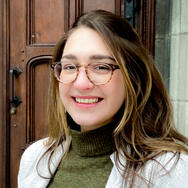
Emily Tallo
WebsiteBefore coming to CISAC, Emily was a PhD candidate in political science at the University of Chicago specializing in international relations. Prior to starting her Ph.D., she was a research assistant in the Stimson Center’s South Asia program.
Emily's research agenda stems from a deep interest in how political elites influence foreign policy through their interactions with other elites. Although leaders make the final decisions in international politics, they must contend with the interests of foreign policy elites such as advisers, politicians, and bureaucrats. Her book project explores how political leaders shape foreign policymaking institutions, rules, and norms to achieve their policy objectives despite real or anticipated resistance from the foreign policy bureaucracies. Emily's other projects relate to how political elites structure foreign policy debates in democratic countries, especially in India.
Emily's hobbies include birdwatching and photography.

Maya Van Nuys
WebsiteBefore coming to CISAC, Maya was a Neubauer Family Distinguished Doctoral Fellow at the University of Chicago where she received her Ph.D. in Political Science in July, 2025. Maya holds an M.A. in Political Science from the University of Chicago and B.A. in Global and International Studies and Humanities from the University of Kansas.
Maya's research combines critical and mainstream approaches to explore the legacies of empire in conflict dynamics and state-building. Specifically, she is interested in how international organizations and private firms collaborate with states for international security sector reforms in and outside of post-conflict contexts.
Her hobbies include playing the violin and reading too many romance novels.

X. Zhang
WebsiteX is a PhD candidate in the Department of Political Science at the University of Wisconsin–Madison. Prior to this, he received an MA from the University of Chicago's Committee on International Relations and a BIR from the Australian National University.
X's research focuses on the dynamics of revenge in international conflict. While conventional wisdom and strategic discourse often advocate for retaliation as a means of deterrence, he proposes that the real impetus frequently stems from an intrinsic desire for revenge. He argue that the primary trigger for revenge in international relations is the magnitude of suffering experienced by one’s national ingroup. Consequently, retaliatory actions are less about strategic deterrence and more about inflicting equivalent pain on the adversary, potentially setting off a cycle of revenge. Thus, in security crises and peace settlements, the key to escalation management and rivalry termination lies in reducing adversary suffering and the adversary public's desire for revenge.
As a hobby, X is writing a novel about disinformation and gaslighting in politics.
